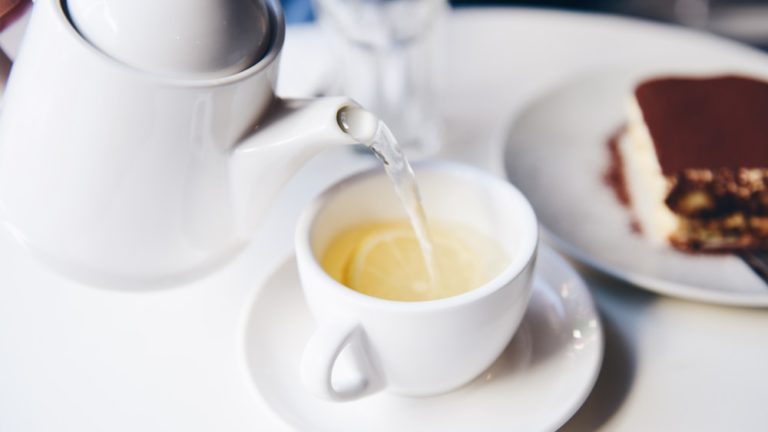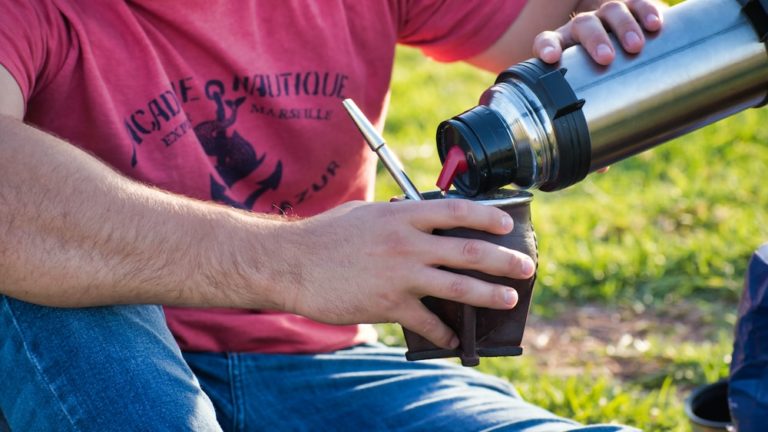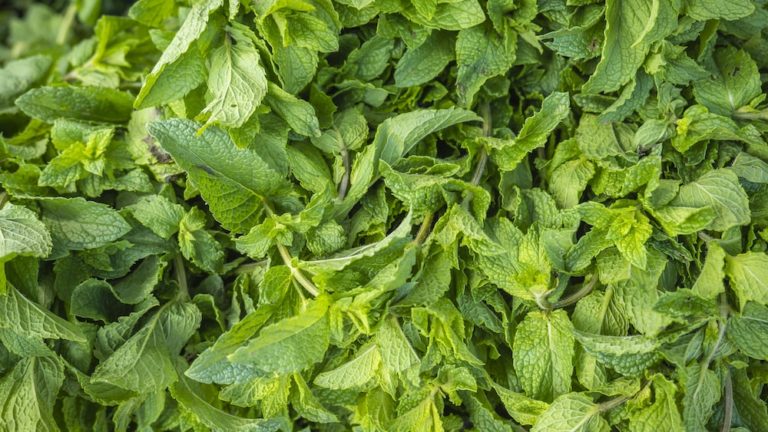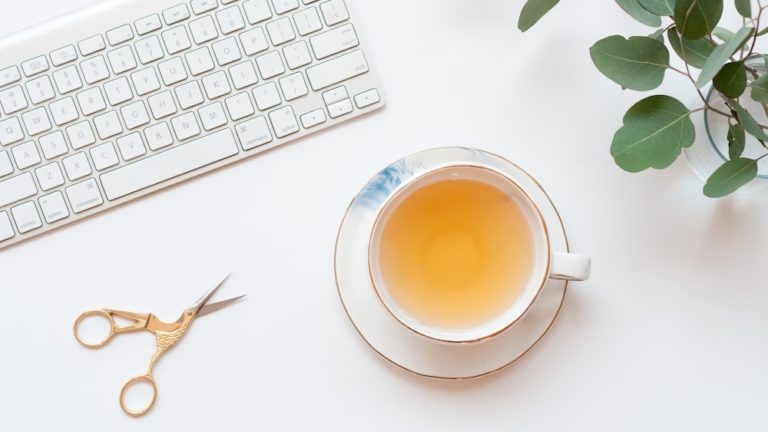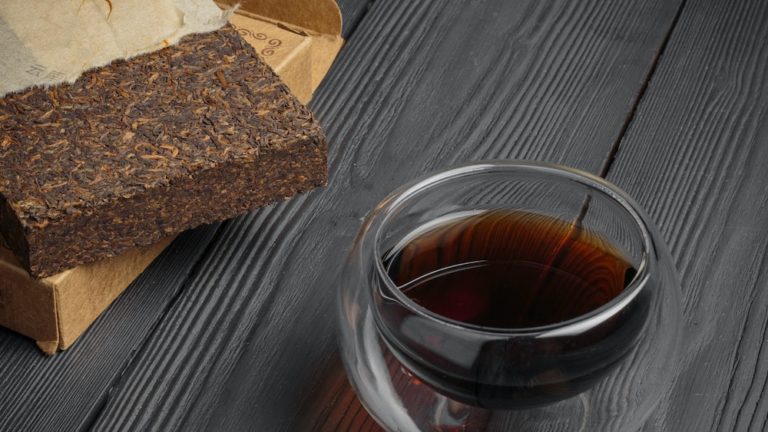Oolong Tea In Pregnancy: Safety, Precautions, And Effects
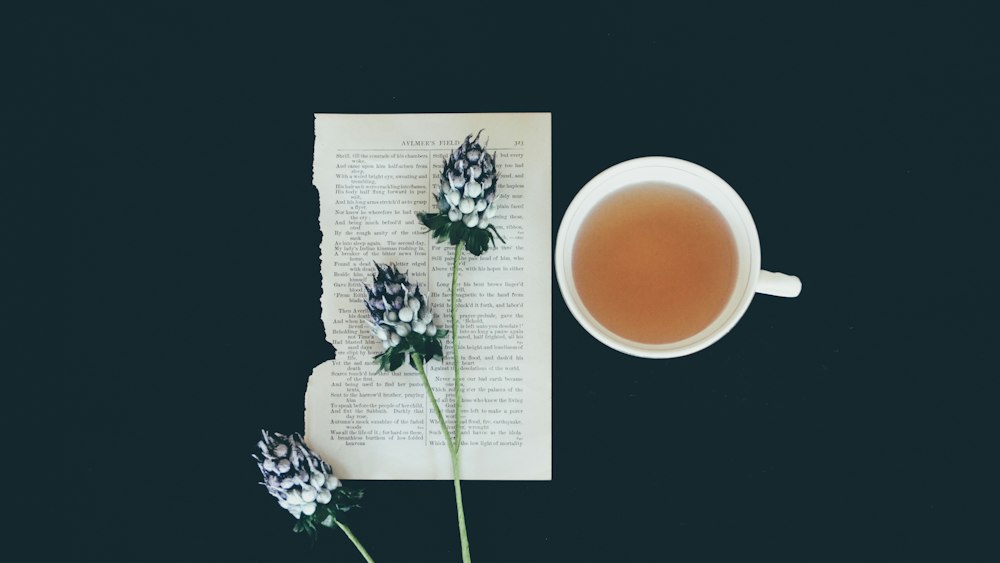
Oolong Tea In Pregnancy: Safety, Precautions, And Effects
Navigating the intricate tapestry of pregnancy nutrition can often feel like deciphering an ancient scroll with a quill pen. Among the array of do’s and don’ts, the topic of oolong tea in pregnancy delicately brews its way into the conversation. For countless expectant mothers, and tea aficionados alike, the brew becomes more than a mere beverage; it’s a whisper of comfort, a stitch in the cultural tapestry, and sometimes, a subject of debate when it comes to maternal health.
Key Points:
- Oolong tea is a traditional Chinese tea between black and green tea in terms of oxidation and flavor.
- Oolong tea contains antioxidants, minerals, and moderate caffeine levels beneficial for health.
- Pregnant women should consume oolong tea in moderation due to caffeine content.
- Consultation with a healthcare provider is crucial before incorporating oolong tea during pregnancy.
- Alternative beverages like herbal teas or decaffeinated green tea can be considered during pregnancy.
- Excessive oolong tea consumption can lead to side effects like caffeine-related issues and dehydration.
The journey of understanding oolong tea’s role during pregnancy is akin to balancing on a tightrope – exciting, yet filled with contemplation. With cultural tales entwined with scientific scrutiny, we embark on an exploration, not just of a drink, but of an ancient tradition, sifting through the leaves of knowledge to uncover the blend of benefits and precautions. Brewing a perfect cup of tea mirrors the quest for balance in pregnancy – infusing enough wisdom to draw flavor without the bitterness of overindulgence.
In this expedition, we’ll tread through the valleys of oolong’s origins and ascend the mountains of modern medical advice, quenching the thirst for knowledge while ensuring the journey remains light, like the feathery touch of leaf buds on your palate. Let’s embark on this adventure together, with a spoonful of curiosity and a cup brimming with insights.
Understanding Oolong Tea
At the heart of our exploration lies oolong tea, a beverage that dances on the fine line between black tea and green tea, carrying the essence of both yet declaring its unique identity. It’s a tea that refuses to be boxed into a single category, offering a symphony of flavors and an anthology of benefits worth delving into.
What is Oolong Tea?
Oolong tea is the chameleon of the tea world; it’s a traditional Chinese tea that undergoes partial fermentation, positioning itself between green tea and black tea in terms of oxidation and flavor. This tea is derived from the Camellia sinensis plant, the very cradle of all true teas, where the magic resides in the leaf buds and leaves.
The process of making oolong tea is an art in itself, involving withering the plant under the strong sun and oxidation before curling and twisting. This meticulous crafting results in a complex flavor palette – ranging from floral to smoky, with a rich body that captivates connoisseurs and casual sippers alike. Indeed, oolong embodies a bridge between two worlds, offering an infusion rich in heritage and taste.
Oolong tea is a versatile tea with a complex flavor profile, bridging the gap between green and black teas through a meticulous crafting process that captivates tea enthusiasts.
Nutritional Profile and Caffeine Content
Drifting from the poetic realm of flavor to the concrete ground of nutrition reveals oolong tea as a tapestry woven with benefits. This brew is not merely a bearer of taste but a vessel of vitamins, minerals, and antioxidants, contributing to a healthful panorama. However, the subject of caffeine content in oolong tea brews a pot of attention for pregnant women.
Compared to its cousins, green tea and black tea, oolong sits comfortably in the middle with a caffeine content that dances to the tune of moderation – usually less than black tea but more than green tea. For mothers-to-be, or those with a keen eye on caffeine intake, this presents a jewel of information worth savoring. Balancing the nutritional benefits with caffeine considerations becomes a pivotal aspect of oolong tea consumption in pregnancy. [1]
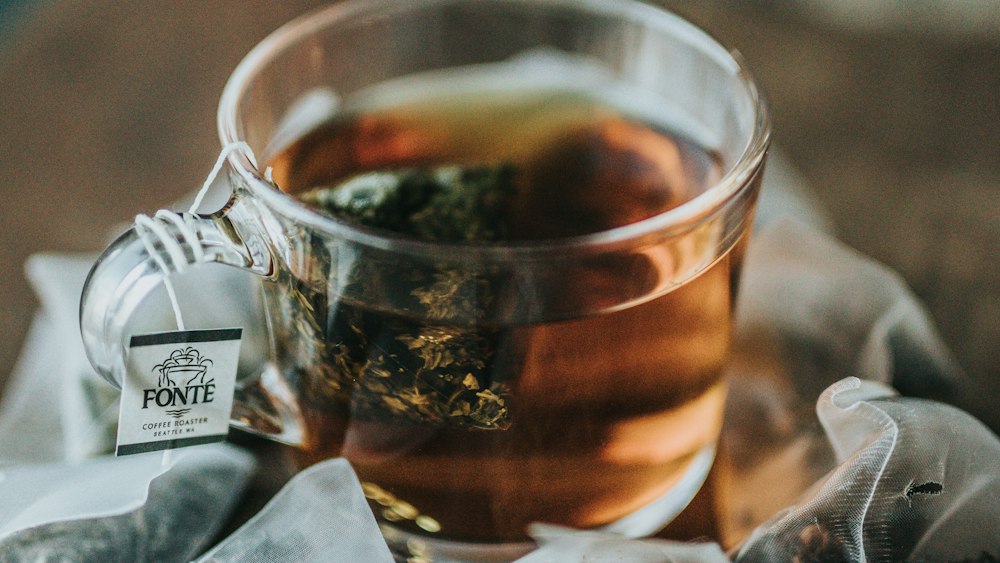
Oolong Tea During Pregnancy
The canvas of pregnancy is painted with numerous advices, often leaving expectant mothers pondering about the safety and benefits of their food and drink choices. Here, the discussion of oolong tea during pregnancy steeps in, bringing with it questions of safety, health benefits, and precautions.
Potential Benefits of Oolong Tea in Pregnancy
Oolong tea, with its antioxidants and minor minerals, might serenade the health of pregnant women with a melody of benefits. These components contribute to boosting immunity and providing hydration, essential aspects of a healthy pregnancy. Furthermore, the soothing effects of oolong tea could play a chorus in reducing pregnancy-related stress and anxiety.
Additionally, oolong tea’s ability to aid digestion and potentially regulate blood sugar levels could present a verse of relief for expectant mothers navigating the crescendos of pregnancy cravings and dietary changes. This blend of potential benefits crafts a compelling narrative, casting oolong tea in the light of a supportive friend through the journeys of pregnancy.
Risks and Precautions for Pregnant Women
While the song of oolong tea’s benefits may be harmonious, it carries a few dissonant chords, especially regarding caffeine content and potential risks. Pregnant women should approach oolong tea consumption with a measure of caution, considering the implications of caffeine on pregnancy.
Excessive caffeine intake during pregnancy has been linked to risks such as reduced fetal growth and increased risk of pregnancy loss, according to health professionals. Thus, consulting a doctor or a healthcare provider before incorporating oolong tea – or any caffeinated beverage – into a pregnancy diet is the chorus of wisdom. The moderation and diligence in oolong tea consumption become paramount, ensuring the brew nourishes without overshadowing the health of the mother and the unborn child.
Caffeine and Pregnancy
The brew of pregnancy advice is rich and varied, yet the ingredient of caffeine garners particular scrutiny. Understanding its role and impact during this critical period steeps importance not just for coffee aficionados but for tea lovers navigating the waters of oolong tea in pregnancy.
Effects of Caffeine During Pregnancy
Caffeine, the spirited component often celebrated for its wakeful embrace, carries a different tune during pregnancy. Its journey through the bloodstream not only quickens the pulse of the mother but whispers to the unborn child, crossing the placenta with an ease that warrants attention.
Research indicates that high caffeine intake during pregnancy can be linked to increased risks such as low birth weight and has been associated with longer gestations. The metabolization of caffeine slows during pregnancy, crowning it with a potential to impact both mother and developing fetus. In this dance of nutrients and elements, the consumption of caffeine through oolong tea becomes a ballet that requires grace and informed choreography.
High caffeine intake during pregnancy can increase the risks of low birth weight and longer gestations, affecting both the mother and the developing fetus due to the slowed metabolization of caffeine.
Recommended Caffeine Intake for Pregnant Women
In the chorus of pregnancy guidelines, the crescendo often peaks at the discussion of caffeine intake. The American College of Obstetricians and Gynecologists tunes the advice to a moderate harmony, recommending that pregnant women limit their caffeine consumption to less than 200 mg per day – a refrain that echoes across various health guidelines.
In translating this melody to the key of oolong tea, an intricate composition unfolds. Given the variable caffeine content in oolong tea, this symphony plays a tune of diligence and moderation, proposing a consumption pattern that respects both the nutritional serenades and the caffeine crescendos. Navigating this balance ensures the health and harmony of both mother and child in the intricate dance of pregnancy.
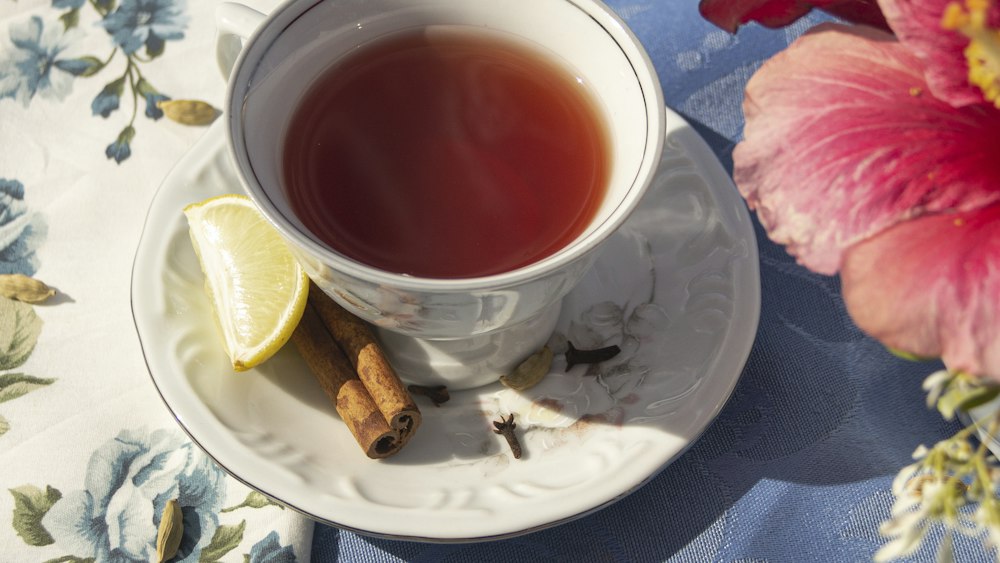
Safe Consumption of Oolong Tea
As we simmer down the conversation of oolong tea in pregnancy, finding the essence of safe consumption becomes the delicate leaf at the bottom of our cup. In this brew of information, clarity and guidance serenade the path to enjoying this beloved beverage while emphasizing the health and well-being of expectant mothers.
How Much Oolong Tea is Safe?
When it comes to oolong tea in pregnancy, knowing how much is safe is akin to walking a tightrope over a valley of caffeine and antioxidants. Generally, pregnant women are advised to moderate their caffeine intake to less than 200mg a day, according to health experts. A cup of oolong tea contains approximately 30-50mg of caffeine, making it seemingly innocuous at a glance.
However, let’s caveat this with a big, bold reminder: every mother’s tolerance to caffeine varies. Consulting a doctor is always the best course of action before incorporating or continuing oolong tea in one’s pregnancy diet. The key to safe consumption is not just moderation but also awareness of one’s body and its reactions.
Knowing the safe amount of oolong tea during pregnancy involves balancing caffeine and antioxidants, emphasizing the importance of individual tolerance and consulting a doctor for personalized guidance.
Alternatives to Oolong Tea for Pregnant Women
Now, suppose this journey through the winding paths of pregnancy has led you to the conclusion that oolong tea might not be your cup of tea, after all. Fear not, for there are plenty of alternatives that can provide comfort, minus the caffeine conundrum.
- Herbal teas: Certain herbal teas are welcomed with open arms in the realm of pregnancy. Look for those that contain ginger or peppermint, as these have been known to soothe pregnancy-induced nausea. However, always double-check with your doctor as some herbs can be a no-go.
- Decaffeinated green tea: If you’re yearning for the tea experience without the caffeine kick, decaffeinated green tea can be a soothing alternative. It allows you to savor the ritual of tea-drinking while staying within the safe confines of caffeine consumption guidelines.
- Lemon water: Sometimes, simplicity is key. Lemon water can offer a refreshing and vitamin-rich option, keeping you hydrated and providing a touch of zest to your water intake. It’s an excellent way to stay refreshed without worrying about caffeine content.
Interactions and Side Effects
Delving deeper into the teapot, let’s discuss the interactions and side effects that might brew when oolong tea is mixed into the pregnancy concoction. While oolong tea is lauded for its myriad of health benefits, from aiding digestion to enhancing skin health, the equation changes when pregnancy enters the picture. The interaction with medications and the side effects of excessive consumption are pivotal considerations every mother-to-be should ponder.
Medication Interactions with Oolong Tea
First off, oolong tea isn’t just a plant; it’s a potion with the power to interact with certain medications. Particularly, it can affect the absorption of iron due to its tannin content, making it a significant concern for women on folic acid supplements or those addressing iron-deficiency scenarios.
Another noteworthy interaction is with medication for blood pressure. Oolong tea‘s caffeine content can raise blood pressure levels temporarily, which may not play well with antihypertensive drugs. Similarly, it might increase the speed at which the liver breaks down some medications, affecting their efficacy.
The vital takeaway? Always, and I mean always, have a chat with your doctor before continuing or starting oolong tea during pregnancy. Because, honestly, nobody wants their tea to turn into an unintended chemistry experiment with their meds.
Possible Side Effects of Excessive Consumption
Drinking oolong tea in moderation is like enjoying sunshine in small doses – delightful and beneficial. However, just as too much sun can lead to a sunburn, excessive consumption of oolong tea can brew a storm of side effects. Caffeine can be a jittery, sleep-stealing gremlin for some, especially when consumed in large amounts. [2]
More than the recommended daily caffeine intake can lead to palpitations, headaches, and insomnia – the very antithesis of what a pregnant woman needs. Plus, let’s not forget about hydration. Oolong tea is diuretic in nature, meaning drinking it in excess can lead to dehydration, another no-go during pregnancy.
FAQs
1. Can oolong tea affect fetal development?
Oolong tea can affect fetal development due to its caffeine content. However, when consumed in moderation, it is unlikely to pose significant risks.
2. Are there herbal teas that are safer alternatives during pregnancy?
Yes, there are herbal teas that are considered safer alternatives during pregnancy, such as ginger and peppermint teas, though consultation with a doctor is recommended.
3. How does oolong tea compare to other teas in terms of caffeine content?
Oolong tea falls mid-range in caffeine content when compared to other teas, with black tea being higher and green tea lower.
4. Can oolong tea help with pregnancy-related nausea?
Yes, oolong tea may help with pregnancy-related nausea due to its soothing properties, but moderation is key to avoid excessive caffeine intake.
Conclusion
In the intricate dance of flavors that is tea culture, oolong tea in pregnancy emerges as a topic ripe with questions and considerations. It’s a blend of the old and the new, merging centuries-old traditions with the contemporary cadence of health and wellness. The key takeaway from our brew-tiful exploration? Moderation and informed choice are your best companions on this journey. [3] [4]
Whether you decide to indulge in a cup of oolong or opt for an alternative, remember, the essence lies in creating a harmonious balance that caters to both the wellness of the mother and the development of the child. As each sip unfolds layers of aroma and flavor, let it also unravel a deeper connection to the choice you make for a healthy pregnancy.
So, here’s to finding that perfect steep in life’s pot – full of warmth, health, and wisdom. And remember, when in doubt, always consult your healthcare provider. Till next time, stay steeped in joy and health, and may your tea journey be as enriching as it is enlightened. Goodbye, fellow tea enthusiasts, from Zoe.
References
1. Comparison of antioxidant capacities of different types of tea using …. Sep 30, 2017 … Most of these studies demonstrate that antioxidant activity decreases in the following order: green tea > oolong > black tea [12, 22], whereas …
2. OOLONG TEA: Overview, Uses, Side Effects, Precautions …. Pregnancy: Drinking moderate amounts of oolong tea during pregnancy is possibly safe. Do not drink more than 3 cups of oolong tea daily. This provides about …
3. OOLONG TEA: Overview, Uses, Side Effects, Precautions …. Pregnancy: Drinking moderate amounts of oolong tea during pregnancy is possibly safe. Do not drink more than 3 cups of oolong tea daily. This provides about 300 …
4. Scientific Opinion on the safety of caffeine. green tea, oolong tea, black tea, (sugar-containing and sugar-free) … Relationship between dietary choice and effects of caffeine challenge. Arch Gen. 3377.

